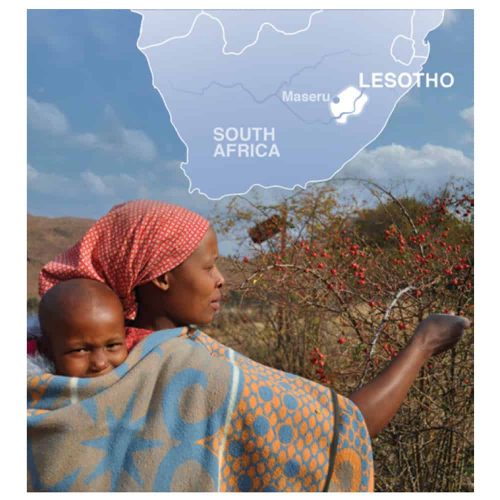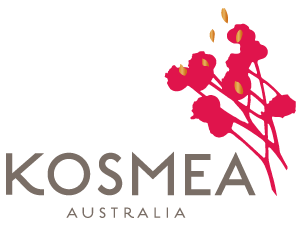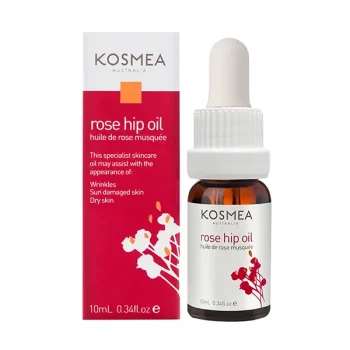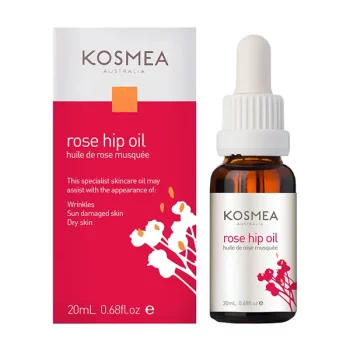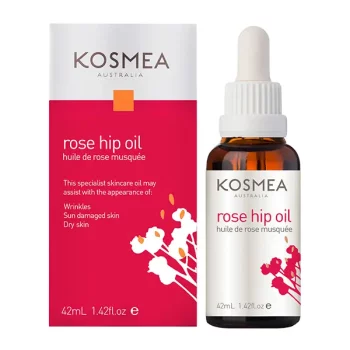Rosehip Oil – the surprising truth
With a bevy of A-lister beauties including Rose Byrne, Kate Middleton, Miranda Kerr, and Rosie Huntington-Whiteley claiming to be fans, there’s little wonder that rosehip oil has become a must-have product in women’s beauty regimes around the globe. But while many of us are aware about the incredible skincare benefits of this wonder oil, one thing that might come as a surprise is that there are different grades of rosehip oil available on the market.
Just like olive oil comes in multiple grades, from the super cheap that you’d rather leave on the shelf to the one you’d happily drizzle on everything, rosehip oil varies in quality. “They all look the same, they all tend to do the same thing, but there is a difference between higher grades. Like with olive oil, we know that there is an extra virgin, there’s a first press, and there’s one that can be really cheap that has been extracted with a chemical. There are all different grades of vegetable oil, so why wouldn’t there be different grades of rosehip oil?” says Kosmea founder Marie Kapetanakis.
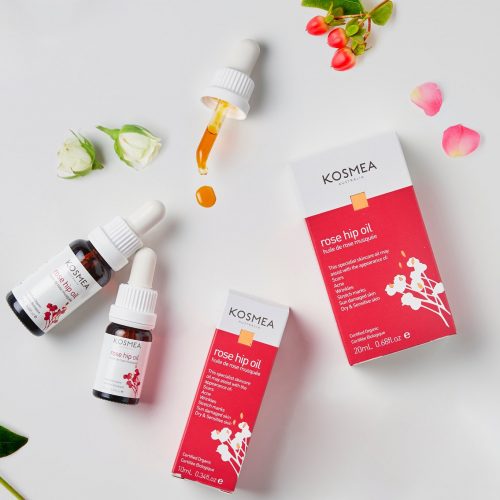
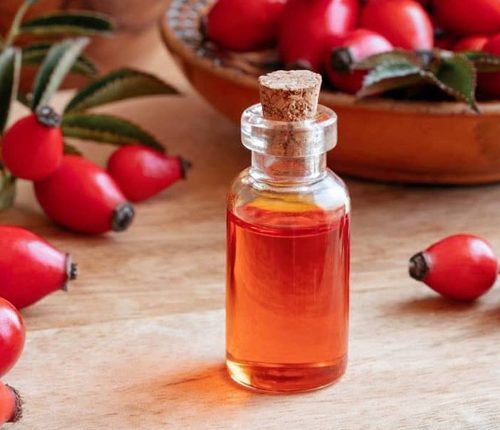
The extraction process
The grades of rosehip oil are determined based on where they are sourced and how the oil is extracted. There are three different methods of extraction – rosehip oil is either solvent, cold-pressed or supercritically extracted. Supercritical extraction is known as the superior form of extracting, as no heat enters the product. Despite its name, cold-pressed rosehip oil is often exposed to heat.
“Rosehip seeds are very hard, almost as hard as a little pebble. If you cold-press rosehip seeds, they generate quite a lot of friction, which generates heat. As we know for a vegetable oil or a fruit oil, heat is a destroyer of some of the valuable components of the antioxidants,” explains Kapetanakis.
When the rosehip is supercritically extracted, carbon dioxide gas is used at high pressure but low temperatures to extract the oil. “No heat ever comes into contact with the manufacturing of our oil,” says Kapetanakis.
Related article: The art of extracting Rosehip Oil to produce the best quality Rosehip Oil in the world
Everything (but the girl)
When comparing rosehip oil, another difference between brands is that some use oil just from the seed, while others utilise the whole fruit. Using the rosehip skin delivers up to eight times more vitamin A than compared to just using the seed. “We buy the whole rosehips from communities in Southern Africa, we dry them, and then we use the whole fruit. The seed doesn’t give a lot of vitamin A; there is much more vitamin A in the fruit. If you’ve got less vitamin A, you’re not going to get as many anti-ageing benefits. You know if you have a good-quality oil by the vitamin A content – our vitamin A content is 4000 micrograms per gram,” reveals Kapetanakis.
By supercritically extracting the oil and using the skin, rosehip oil is also packed with lycopene, beta-carotene, and a small amount of vitamin C.
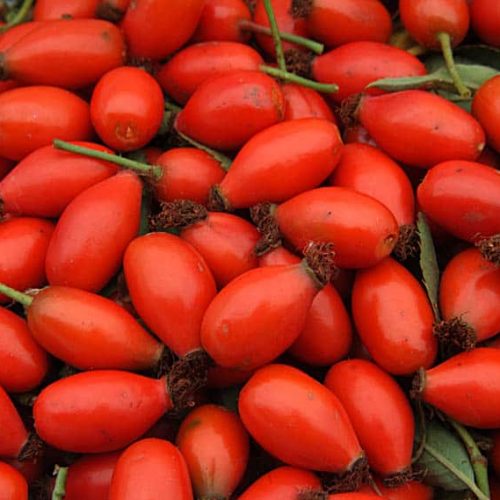

A refined life
Many rosehip oils go through a process of being refined, something that Kapetanakis warns people to avoid. “If a product has been refined, it goes rancid very quickly. When you refine something, you’re actually adding more heat to it – and heat destroys many of the valuable antioxidants which are keeping the oil from going off. Our oil has the longest shelf life – it can last up to three years unopened. We keep our rosehip in a dark glass to keep the light away from it because light, heat and air is the enemy of rosehip oil,” explains Kapetanakis.
She adds: “Most rosehip oils are light with a yellow to a clear colour – this means the product has been refined. We don’t refine our oils and you can see the difference in the colour [Kosmea’s Rosehip Oil has a red tinge]. You can see the difference, smell the difference, and most importantly, when you put it on the skin, you can feel the difference because it absorbs into the skin and leaves a matte finish.”
Related article: Here’s why Kosmea’s Rosehip Oil is the best in the world
What to look for
While it’s hard as a consumer to know whether a rosehip oil is of a high grade just from looking at the pack, a trick is to find out where the product is sourced. Kosmea is proud to use rosehip oil sourced from Southern Africa, where they are renowned for using the whole fruit, not refining the product, and working with a supercritical extraction method.
Article courtesy of www.beautydirectory.com.au
